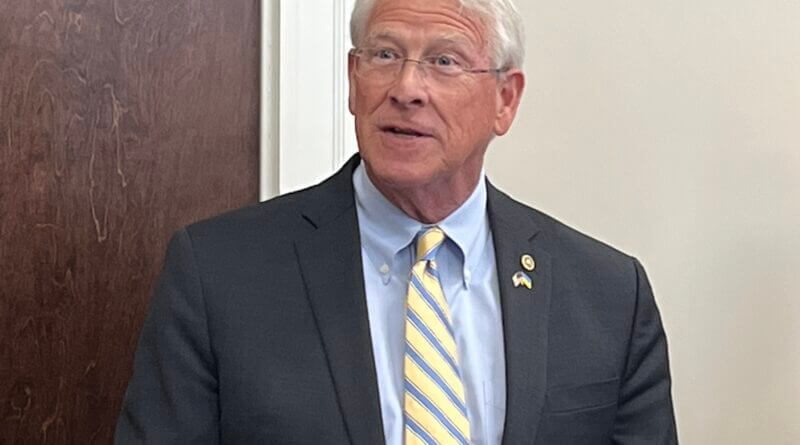Wicker: Celebrates JROTC Program
By. Sen. Roger Wicker (R-Miss.)
New Mississippi Unit Will Expand Positive Cadet Outcomes
On a hot Monday this July, 125 cadets reported for duty at Clinton High School. They gathered to launch Mississippi’s first Coast Guard Junior Reserve Officers’ Training Corps, or JROTC, unit. The state hosts over 75 JROTC units run by the Army, Navy, Marine Corps, Air Force, and now the Coast Guard. Nationwide, the military sponsors over 3,500 programs. And interest is soaring: Nearly 20 Mississippi schools fill a waitlist for new chapters.
My experience as an advanced Air Force ROTC cadet at the University of Mississippi made me a lifelong supporter. In the Senate, I am helping meet today’s rising demand. I authored the JROTC Act, which President Trump signed into law, to ensure at least 100 rural units operated across the country. I also helped craft legislation to make it easier for states to start more programs.
JROTC Boosts Cadet Outcomes
It is no wonder that families, students, and schools are interested in JROTC. The data is clear that participating in the program helps cadets succeed. A RAND Corporation study reported cadets have lower suspension rates and higher graduation rates than their peers, and they can also improve their leadership skills and physical fitness. A Mississippi state auditor’s review found cadets in Jackson Public Schools score an average of three points higher on the ACT than their peers.
JROTC Is Reaching More Students
Unfortunately, these benefits have not always been available to many across our nation, and I mean for that to change. Another RAND study found that around one in four urban public high schools hosted a unit while only one in 20 rural schools did so. Most JROTC programs are in large cities and schools, putting much of Mississippi at a disadvantage. When I hear the positive results coming out of our state’s capital city, I am determined that Mississippi will host even more units.
My JROTC Act is making that possible. It brings the benefits of the program to more students in the state by helping schools in small cities establish chapters. The Act prioritizes underserved areas and allows administrators more options for hiring instructors.
JROTC Builds Future Military Leaders
As I point out JROTC’s positive effects on young peoples’ lives, I also hope the program will help our armed forces. Today, one of our top national security vulnerabilities is our military recruiting crisis. For 50 years, we have had an all-volunteer force. The size and strength of our military has depended on recruits enlisting, not on a government draft. But today, not enough Americans are signing up. This year, the Army, Navy, and Air Force will all miss their recruiting objectives – the third time the Army has done so in the past five years.
Interest in entering military service is at an all-time low. There are many reasons for this problem, and there is no easy fix. However, we know JROTC can be a part of the solution. Though the program’s primary goal is to promote civic participation and strong character, it also makes the armed forces a plausible post-graduation path. Senior cadets in Jackson have a 95 percent college acceptance rate, so they have options after high school. But those who do not choose higher education tend to enlist at a far higher rate than their peers who similarly forgo college. They also have longer tenure than non-cadet recruits.
All of these are positive signs for the future of our military. Students like the Clinton High School cadets are embracing the challenge and rigor that will make them good citizens and can lead them to consider a career in their country’s armed forces.
Note: This item is the weekly Wicker Report column of Sen. Roger Wicker and provided by the Senator’s office.





